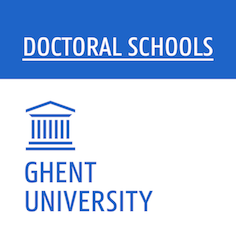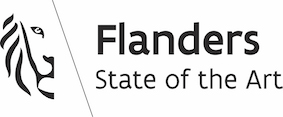Researching Global Social Change
Researching Global Social Change
Frontiers of capital – Extractivism, Commodification and Resistance
Global Studies Research Seminar 2023
Co-organized by the Ghent Centre for Global Studies, Transnational Institute and the International Institute of Social History
A specialist course of the Doctoral Schools of Arts, Humanities & Law, and of Social and Behavioural Sciences of Ghent University
In recent times, there has been a surge of mobilisations worldwide, igniting transformative movements that challenge established power structures. From the Mapuche indigenous resistance in Chile, advocating for land rights and cultural preservation, to the anti-uranium mining protests in Niger, highlighting concerns about the environment and community well-being, these local struggles resonate with wider global issues. Across Latin America, protests against mega-projects and extractive industries have gained momentum. The resistance by Xingu indigenous communities in Brazil against the Belo Monte Dam, and the opposition to the Conga mining project in Peru by local communities, reflect deep concerns regarding environmental impact, displacement, and the violation of indigenous rights.
These diverse mobilisations illustrate the intricate landscape of resistance against extractivism, commodification, and social injustices. By examining the convergences and divergences among these movements, our aim is to comprehend the underlying structures and dynamics that shape their struggles. Moreover, we will critically reflect on the potential for solidarity and alliances across borders and at the intersections of class, gender, and race. Through exploring alternative narratives and transformative practices within these mobilisations, we seek to uncover the potential for systemic change and social reconstruction.
This seminar cordially invites you to join us in exploring the frontiers of capital, extractivism, commodification, and resistance beyond mainstream examples. By examining these impactful topics, we will gain profound insights into the complexities of global social change and the potential to forge a more just and sustainable future.
Parallel workshop themes:
- Transition minerals and the new geographies of extraction and production – Sol Trumbo Vila and Luciana Ghiotto
- Militarism and extractivism – Josephine Valeske & Nick Buxton
- Social reproduction, feminist economies – Katie Sandwell and Lavinia Steinfort
Programme
Preparatory sessions Ghent University
16 February (10:00 – 12:00) with TNI
- Introduction by Eric Vanhaute and Christopher Parker. Introduction to Global Studies research seminar course (10 minutes)
- TNI presentation (online) on the work of the institution and how it works. Elaborate on the research process; how is knowledge being produced? Provide a research example to explain how academic research is compared to TNI research. What are some of the challenges? How to work with academics and activists? etc. (20 – 30 minutes)
- Q&A (10 minutes)
- A pitch by the working group leads on their particular subject (3 – 5 minutes each)
- Creation of 3 working groups on the 3 topics of the workshops
- What does a good research proposal look like
- Preliminary exploration of key questions per theme (in group)
- What are the drivers, actors, processes and dynamics that need to be looked at?
- What are the key questions, concepts and debates in academic literature and among social movements?
- Identify case studies/angles/focal points
- Explore global-local and intersectional dimensions
- Divide the work within the group (readings, case studies etc.)
29 March (13:00 to 16:00)
- Working session in the 4 working groups preparing for the workshop (facilitated by Eric Vanhaute and Christopher Parker)
- Students develop approaches to writing/communicating the results of research in ways that are relevant and responsive to the practical needs and concerns of people and movements without compromising academic quality
- Submit a piece report/ development of a research proposal to TNI facilitators
Thursday 20 April
Venue: Transnational Institute, De Wittenstraat 25, 1052 AK Amsterdam
Morning session (9.45 to 12:00) panel debate
9:45-10:00 – welcome & introduction by Fiona Dove (TNI)
10:00-11:15 – panel debate
11:15-11:30 – Coffee break
11:30-12:00 – Q&A
Panel members:
- dr. Hamza Hamouchene (TNI)
- prof. dr. Marija Bartl (University of Amsterdam)
- Samantha Hargreaves (WoMin African Alliance)
Lunch break (12:00-13:30)
Afternoon session (13:30-17:00) – 4 parallel workshops, organised by the participants/students, facilitated by TNI and UGent scholars
13:30-15:00 – workshops part 1
15:00-15:30 – coffee break
15:30-17:00 – workshops part 2
Friday 21 April
Venue: International Institute of Social History, Cruquiusweg 31, 1019 AT Amsterdam
Morning session – (9:30-11:00) 3 parallel workshops – part 3
Guided tour to the IISH archives – (11:00-12:00)
12:00-13:30 – lunch break
Afternoon session (13:30-16:00) closing plenary
13:30-14:30 – presentation of the workshop outcomes by the participants/students (group work)
14:30-14:45 – coffee break
14:45-16:00 – closing speech by
- prof. dr. Eric Vanhaute (Ghent University)
- prof. dr. Christopher Parker
Previous seminar programmes


